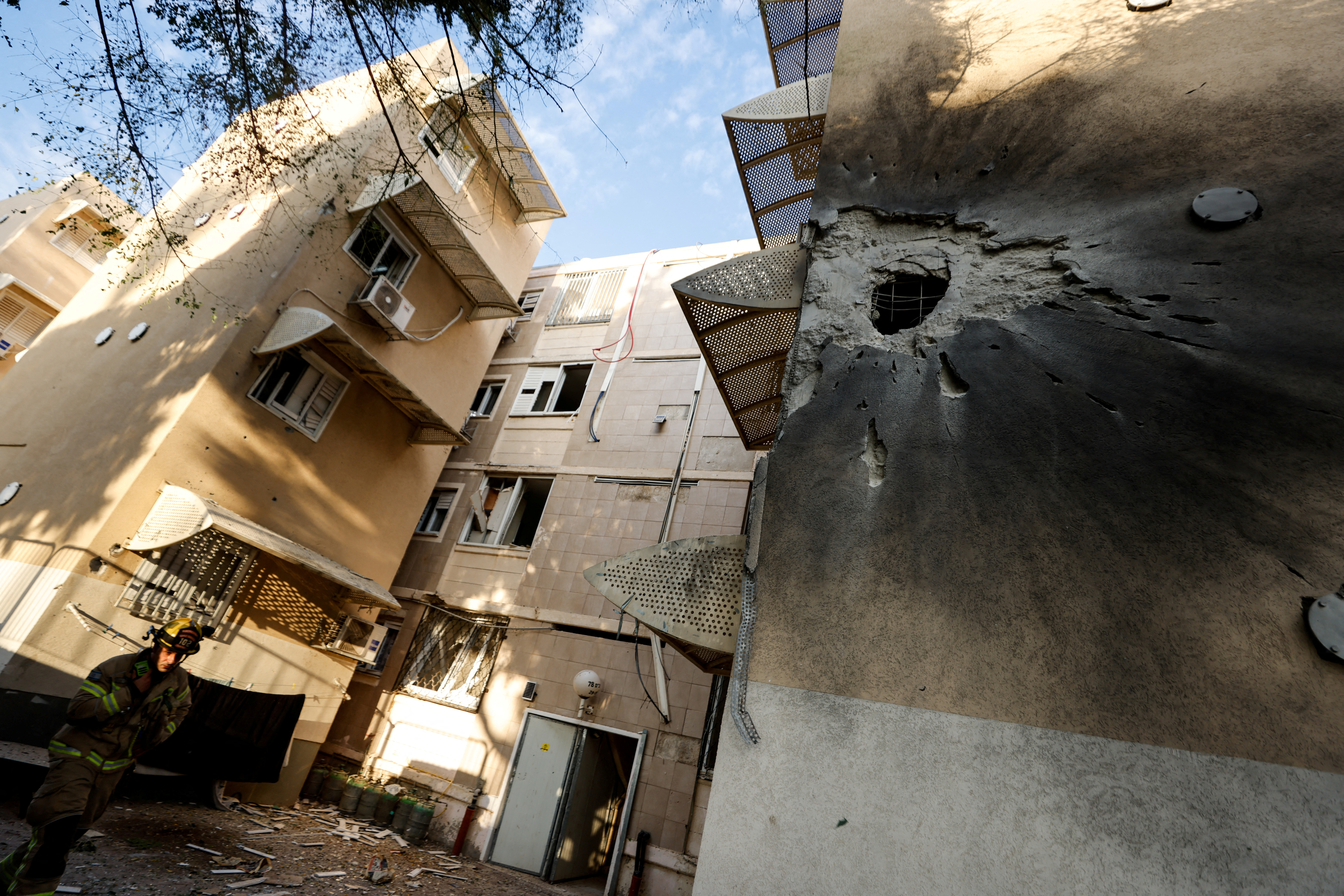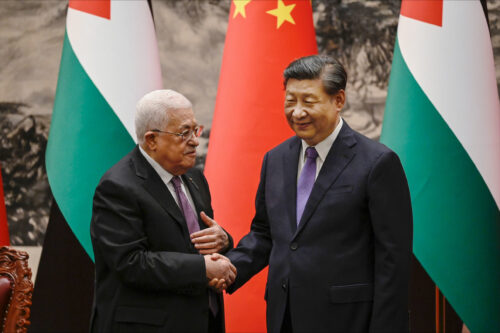China urges nationals in Israel to book commercial flights back home
Meanwhile, Chinese embassies around the world have cautioned citizens in their areas to avoid participating in protests and to stay safe.

The Chinese government has told its citizens to exit Israel as quickly as possible amid the escalating conflict between Israel and the Palestinian militant group Hamas. But unlike many other countries that have arranged repatriation flights from Tel Aviv, Beijing hasn’t chartered planes for its citizens, meaning Chinese nationals need to buy commercial flights if they wish to leave.
At a regular press briefing on Monday, when asked about the safety of Chinese nationals stranded in war-torn Israel, Chinese Foreign Ministry spokesperson Máo Níng 毛宁 advised people to take the earliest available flight back to China, as commercial aviation between the two countries is still in operation.
“We will continue to carefully assess the security situation in Palestine and Israel and closely monitor the situation regarding air and land routes, and safety conditions,” Mao said. “We will do our utmost to assist Chinese citizens.”
Mao also said that four Chinese nationals have been killed during the conflict. Four other Chinese citizens were injured and two are missing.
“The relevant Chinese diplomatic agencies abroad are coordinating efforts to provide medical treatment to the injured and handle the aftermath of the victims,” Mao said. “They are urging foreign authorities to spare no effort in searching for the missing individuals and take all effective measures to ensure the safety of Chinese citizens and institutions.”
Since the Israel-Hamas war broke out, Beijing has been consistently calling for an immediate cease-fire and a “two-state solution” that allows for an independent Palestinian state, describing it as the fundamental way out of the conflict. At Monday’s briefing, Mao reiterated Beijing’s stance on the issue, saying that all parties involved should work together to restore peace.
“We believe that the most pressing issue is to de-escalate the situation, achieve a cease-fire, protect civilians, and prevent a humanitarian disaster,” she stressed. “China is willing to continue making efforts together with the international community for this purpose.”
There has been no official mention from Beijing of the Hamas attacks on October 7 that killed more than 1,400 people in Israel and led to more than 150 people being taken hostage.
“The ‘wolf warrior’ does not exist in real life”
Around the world, at least 20 countries have arranged repatriation flights from Tel Aviv. Last Friday, the first U.S. charter flight evacuating American citizens out of Israel landed in Greece. As the war ramped up this week, Washington arranged a Royal Caribbean International cruise ship to transport nearly 160 U.S. citizens and other foreign nationals to Limassol, a city on the southern coast of Cyprus, where the evacuees could make further arrangements for their desired destination. The assistance is not free, though. According to U.S. federal law, all the passengers will eventually have to reimburse the U.S. government.
Over the weekend, a South Korean military aircraft landed in Tel Aviv and left with 163 South Koreans, 51 Japanese, and six Singaporeans, according to a statement released by Seoul’s Defense Ministry and Foreign Ministry, which said it plans to provide more flights or other modes of transportation to help evacuate its remaining citizens back home.
In contrast, China hasn’t initiated any special evacuation missions for its citizens in Israel so far. A search on China’s leading online travel platform, Ctrip, reveals that there are multiple flights — operated by both Chinese and non-Chinese airlines — departing from Tel Aviv every day that ultimately land in major Chinese cities such as Beijing and Shanghai, though most of them have one or two layovers. For flights scheduled for the rest of the week, prices vary from 5,000 yuan ($683) to 15,000 yuan ($2,050).
Nonetheless, the delay in evacuation efforts still sparked a heated debate on the Chinese internet about the central government’s responsibility toward its citizens stranded abroad, with some saying they were confused by Beijing’s attitude and others urging the ones in danger to be responsible for their own safety.
“Turns out that the ‘wolf warrior’ does not exist in real life,” a Weibo user wrote, referring to the 2017 Chinese blockbuster film Wolf Warrior 2, about a special forces officer being on a mission to rescue Chinese hostages in Africa. In the same thread, another user commented: “Where is the wolf warrior? Shouts the loudest, quickest to be a coward” (战狼呢?喊的最响怂的最快).
As the second-highest-grossing film of all time in China, the film received praise for its patriotic plot. It also set expectations of how the government should respond when the safety of Chinese citizens abroad is threatened. And according to some critics, Beijing’s response to the Israel-Hamas situation is disappointing, especially when compared with the film.
However, many Chinese social media users said they saw no problem in Beijing’s advice. “There are commercial flights to take. For those who are still in Israel, they are probably waiting for free charter flights sent by Beijing. This is not the time to be cheap,” a Weibo user commented.
Last year, when Ukraine fought for its independence against Russia, China arranged charter flights to evacuate those Chinese nationals who wished to leave the country, even as Beijing said it understood Moscow’s “reasonable concerns on security issues.”
“Carefully monitor the state of society”
In light of the Israel-Hamas situation, Chinese embassies around the world have warned citizens in their areas to stay safe. On Monday, the Chinese embassy in the U.S. published an article on its official WeChat account, telling Chinese students to stay away from protests on campus and avoid going to crowded places.
Last week, after a teacher was killed and two people were seriously injured in a knife attack at a school in France, the Chinese embassy in the country wrote on WeChat that Chinese citizens there should “carefully monitor the state of society, pay close attention to personal safety, and avoid making sensitive and excessive remarks.”






